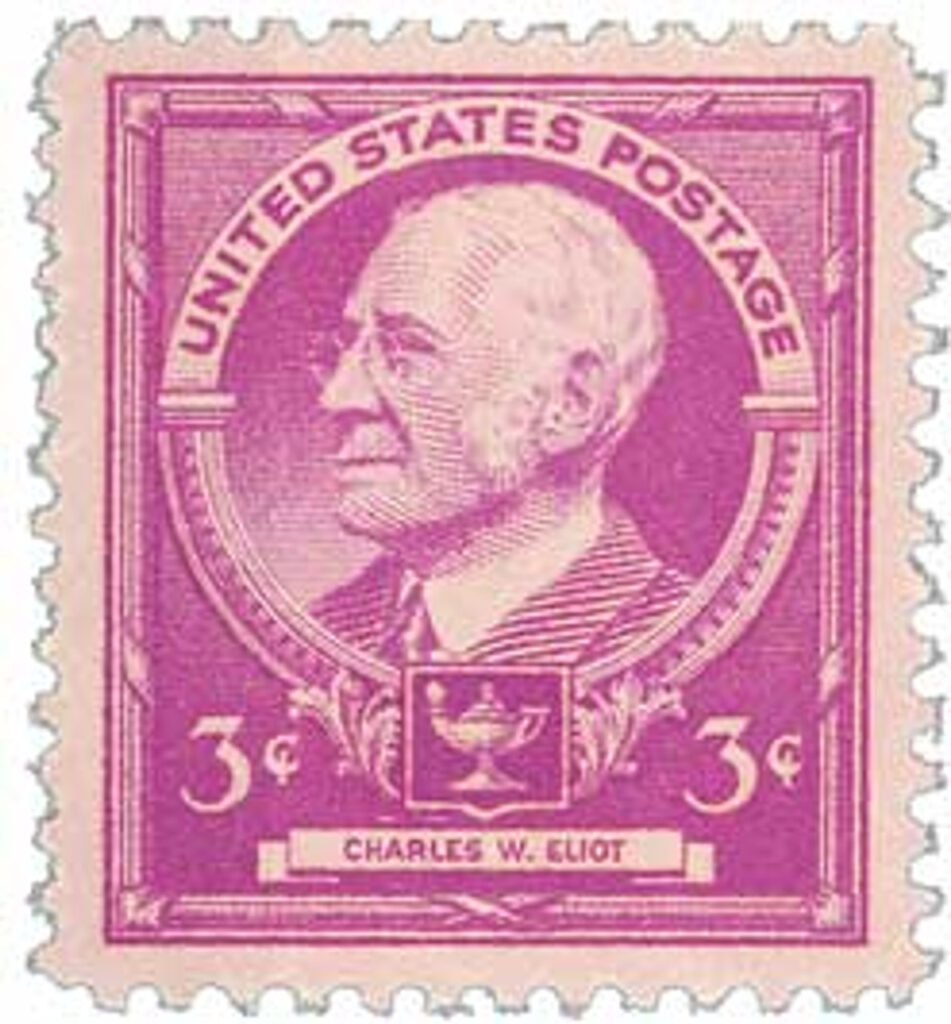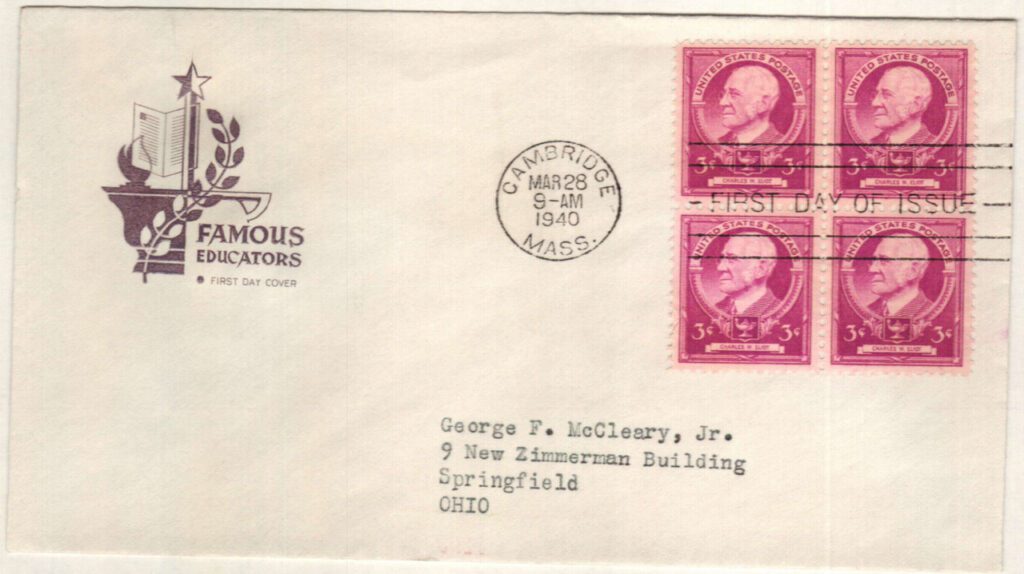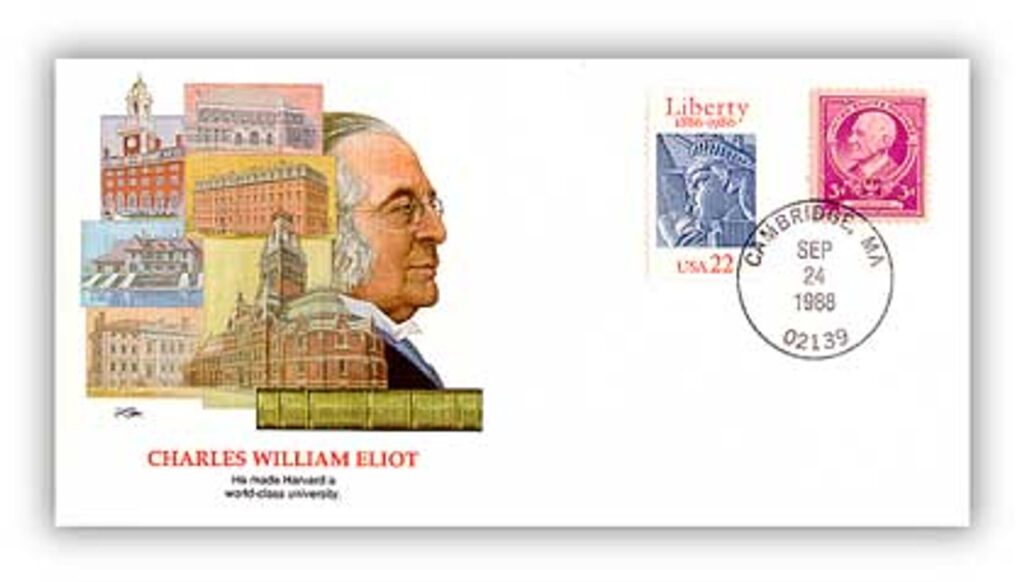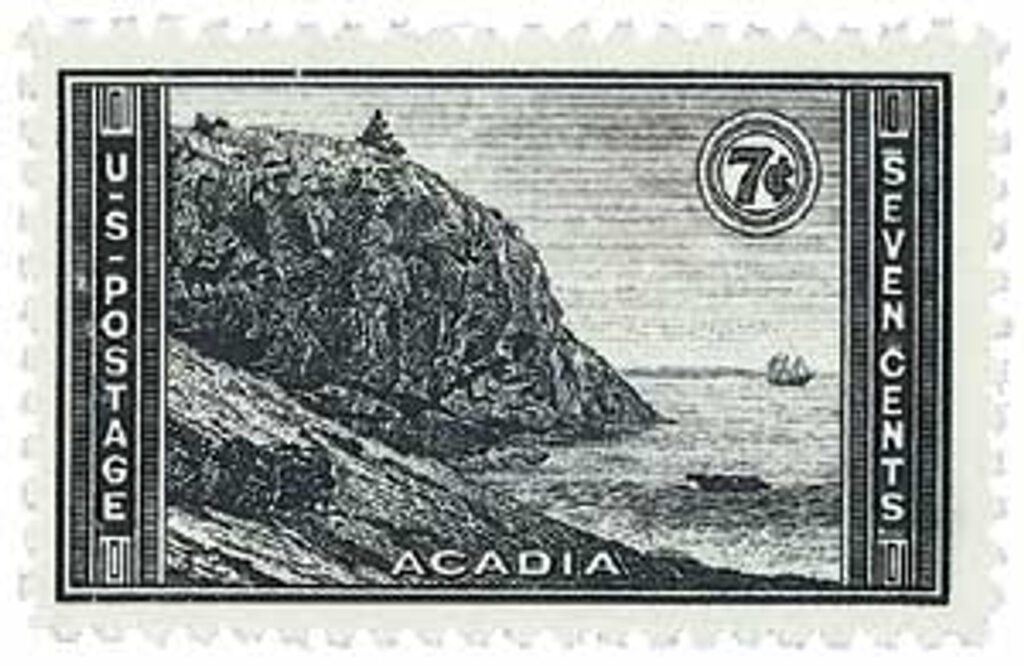Educator Charles William Eliot was born on March 20, 1834, in Boston, Massachusetts.
Eliot came from a prominent family – his father was a politician and his grandfather was a banker. He attended Boston Latin School and Harvard University, graduating in 1853.

Eliot had a great talent for science and had high ambitions, though it would be several years before he could make a name for himself. In 1854, he was made tutor in mathematics at Harvard. Four years later, he was promoted to assistant professor of mathematics and chemistry. In his spare time, he studied ways to reform Harvard’s Lawrence Scientific School. Eliot’s main goal at the time was to get the Rumford Professorship of Chemistry. When he failed to earn that appointment, Eliot left Harvard in 1863.
Rather than start a business to support his family as many of his friends suggested, Eliot took a small amount of borrowed money to go to Europe for two years. His goal was to study the educational systems throughout Europe. One of Eliot’s main goals was to study the role of education in every aspect of the nation’s life.
When he visited schools, Eliot explored every aspect of their operation, from the subjects taught to custodial services. Eliot was particularly interested in the connection between education and economic growth. He noted that in some of these countries, scientific industries were improved by the discoveries made in university laboratories. Eliot also noted that many European universities received government support, while most in America depended on the wealthy.
Eliot returned to the US in 1865 and received an appointment as professor of analytical chemistry at the Massachusetts Institute of Technology. Around this same time, Harvard made an important change. Up to that time, the state governor and other politicians had run the school. It was decided that they should no longer be on the board and that the school’s leadership should be voted on by the alumni.
In early 1869, Eliot published an article in The Atlantic Monthly called “The New Education.” He wrote, “We are fighting a wilderness, physical and moral. For this fight we must be well trained and armed.” Eliot’s article struck a chord with the businessmen that oversaw the Harvard Corporation, and elected him president of Harvard that same year. At 35 years old, he was the youngest president in the school’s history.

One of Eliot’s revolutionary ideas was that students deserved to explore different areas of study to discover their passions and talents. To this end, he instituted an “elective system” at Harvard that greatly increased the different types of courses made available to students. This would allow them to discover their natural talents and then continue on that path in more specialized courses. Eliot also transformed the way classes operated, shifting them away from reciting readings, to more thorough tests, a new grading system, and more focus on individual performance.
During his years there, Eliot reorganized the school’s faculty into new schools and departments and greatly expanded facilities with new labs, libraries, and classrooms. The changes made at Harvard were soon replicated at other institutions and many high schools changed their curriculum to meet Harvard’s high standards. Eliot was also influential in the creation of standardized admissions exams and helped found the College Entrance Examination Board.
Additionally, Eliot pushed Harvard to become a premier center for scientific and technological research. He served as president for 40 years, longer than any other president in the school’s history. During that time, he reformed the university and empowered Harvard’s rise to the forefront of American institutions.
After retiring in 1909, Eliot remained active in educational circles. At Eliot’s 90th birthday celebration, President Woodrow Wilson remarked, “No man has ever made a deeper impression of the educational system of a country than President Eliot has upon the educational system of America.” He also played a role in the creation of Acadia National Park. Eliot died in Maine on August 22, 1926.
| FREE printable This Day in History album pages Download a PDF of today’s article. Get a binder or other supplies to create your This Day in History album. |
Discover what else happened on This Day in History.








Of course, a Maine connection.
While obviously a smart and progressive American, this is the first time I have ever heard Charles Eliot’s name mentioned ! This is why I am SO blessed to have access to Mystic essays supporting new stamp releases. I love history, and am always inspired to learn more about the growth of our Great Nation and the progressives involved through their contributions, inventions and leadership. GOD bless you, Mystic, for your detailed explanations of aspects connected to American history and growth. Producing stamps in public recognition of individuals, inventions or services provided with informing detail behind and about the stamp’s release is fantastic !!
Amen to that brother